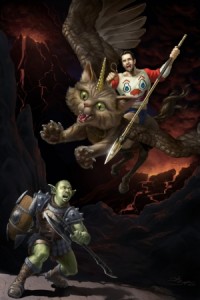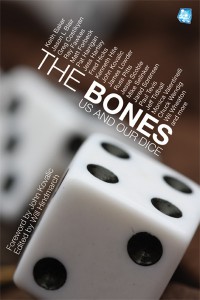Last week, Google and Verizon released a joint statement about their thoughts on net neutrality. This post entitled Press review: Google and Verizon announce a joint proposal for an open internet that was featured on Teleread.com has a nice, in-depth review of what this might mean for the future of the web.
I highly recommend reading that round-up because it highlights the public opinion and offers some industry editorials as well.
Rather than re-hash every piece of commentary that’s out there, I’m going to fast-forward a few years and share with you some of my predictions. In my mind, I feel that we need to start thinking about how the internet’s impending changes will affect how we shop, how we work, and how we interact with others. Why? Well, read on…
First, I believe that the gradual changes I’ve seen over the past year or two, coupled with the fact that most policy-makers do not understand the technology (or data) behind the web, indicate that net neutrality will cease to exist in as little as five years.
The end result of net neutrality not passing will not just affect what content is posted and read, but may also hurt our pocketbooks. We may have to, as they say, “pay to play.” I do not feel that it is unreasonable to think that our internet bills may one day reflect our actual usage, nickle-and-diming everything from sending an e-mail to writing blog posts. Frequency of usage and the type of usage (e.g. video streaming or MMOs) might be two factors in determining charges; where you host your content on the web may be a third. Larger companies and higher trafficked websites may get charged a premium service as opposed to the mom-and-pop blog for content and deliverability, but there’s a good chance that unless search results are “net neutral” after a fashion, those mom-and-pop shops will be a lot harder to find. As a result, entrepreneurial ventures will decline, unless those businesses can provide a valuable or unique service for the big players.
I should point out that I believe that we have heard the first death knell of net neutrality for this internet. The more legislation and the more corporate this internet gets, the more determined other people might be to create a second or even third internet that operates outside of places like Google, etc. Mind you, I do believe that the mobile web is its own internet for all intents and purposes, but we’re not to the point where everyone has a smart phone. (I don’t.) As long as we’re able to access the internet from a computer, changes to the mobile web will not affect everyone. There’s enough users to warrant changes to the mobile web, but if you want to ever be in for a real shock, talk to anyone outside of the U.S. and ask them about their cell phone bills and connectivity. The business of cell phones is very, very different here in the States than it is elsewhere. As a result, the “internet” will evolve very differently according to where you live and where you’re accessing it.
I also believe that as we continue to move toward a commercial web, there will be some standardizations that will have to come through the pipe. You’ll probably see a lot more transparency with celebrity and blogger endorsements once the FCC has had a chance to catch up. The big one will be whether or not web analytics packages will standardize their data across all platforms. A visit on one site should equate to a visit on another, even though right now it does not. Additionally, tagging sites for pirating content will become increasingly easier. I wouldn’t be surprised if some of the tech used to discover plagiarism on the web now will be licensed and released to more companies.
Positioning will, undoubtedly, be the biggest problem for every business, author, etc. that’s out there. I would not be surprised if most browsers changed to include mandatory paid advertising as part of the default frame. I also believe there’s a good chance that website directories will actually make another appearance further down the road and will be sold direct to professionals for different verticals. Yes, some of that is being done now, but as positioning becomes more and more of a concern, everyone will rush to either a) embrace whatever new tech has popped up or b) pay a premium to see who the players are in order to sell to them. Keep in mind that I think some data that we can access for free now will start to disappear under a pay wall as we continue forward because data, not advertising dollars, is where the real money on the web is. Unlike cable or television, with the right web analytics package, you can see everything you need to know about the visitors that are coming to your website. That data, and the people that know how to read it and what to do with it, are more valuable than the content itself.
By far, the most depressing thing about the death of net neutrality are two things: one, there is a strong potential for censorship and two, there is also a good possibility that businesses who focus solely on one type of marketing and sales (e.g. either 100% online or offline) are the most at-risk to lose revenue and sales.
First, let me address my censorship concern. When you have so much content out there — who would know when something is withheld? We are at a point in our history of communication where there is so much content it is hard to know what to listen to and what to pay attention to. And, quite frankly, it is only going to get worse. In my mind, that scenario is just as bad as having no communication and getting spoon-fed the occasional news piece. Second, the reason why businesses with one focal point will be even more at-risk is because the market is still changing — and not necessarily for the better. I’m a strong proponent of long-term planning for that reason. However, it’s difficult to plan long-term when you have no idea what changes will occur online. Not to sound doom-and-gloom, but some changes could mean disastrous results for certain verticals because they put all their proverbial eggs into one basket. To stay soluble, I feel that businesses should consider both online-and-offline components to have revenue streams from both avenues.
The global stage will also have an impact on the future of the web, and I feel that will continue to increase. If (and this is a big “if”) people from all over the world can continue to collaborate, share information and discuss topics freely, then I believe we will begin to see a bigger impact on language and culture. (Given enough time, I wouldn’t be surprised if languages started to disappear as our vocabulary and languages begin to homogenize.) Cracking down on access to the web and where you might visit will slow that process down considerably, which is why I can see some groups that will pop up to fight back against internet culture out of fear for losing their identity.
Many people point to the web as the “Great Equalizer” and I have to agree with them. Once you start to dictate how and when people can interact with the web’s content through different pay structures or a behind-the-scenes hierarchy that few have the ability to affect, that will change. As a result, sites that are unpopular or new will have a helluva time trying to climb uphill unless they get linked to from one of the major players.
Much of what I’ve said here is simply my thoughts on where things might be headed. In this post, I’m not recording them because I need to be right. Rather, I’m writing them down because I feel that we all need to start thinking about our future and I’d like to hear your opinion.
Have you thought about what might happen? Are you worried about net neutrality and the future of the web? Why or why not?
 While every day is Halloween for me, this time of year brings out the best in a lot of free television and movie websites like Crackle.com.
While every day is Halloween for me, this time of year brings out the best in a lot of free television and movie websites like Crackle.com.


